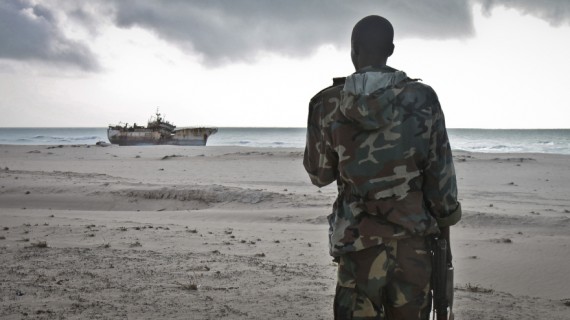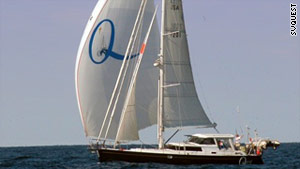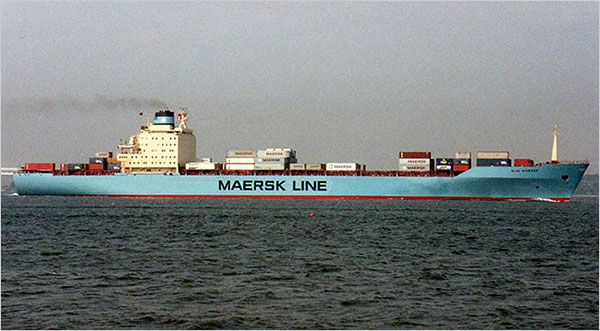Somali Pirates Take Year Off
It's 365 days and counting since the last reported case of piracy in the Horn of Africa.
It’s 365 days and counting since the last reported case of piracy in the Horn of Africa.
Quartz (“It’s been a full year since Somali pirates hijacked a boat“):
Over the last 12 months, piracy off the Horn of Africa has nearly disappeared. In the first 16 weeks of 2013, there have been no vessel hijackings reported (pdf) to the US Office of Naval Intelligence. And according to the UN, the last vessel to be commandeered by militants was the Greek tanker MV Smyrni on May 10, 2012, almost a year ago.
The disappearance of Somali piracy follows
- an increased presence of international navies in and around the Indian Ocean;
- Kenyan military intervention against al-Shabab strongholds in Somalia;
- and vigilance among vessel owners, who have rerouted and fortified ships to combat piracy threats.
Attacks on ships in the region have also declined. From 2009 through 2011, pirates were attacking more than 100 ships a year. In 2012 only 24 ship were fired upon. So far this year, pirates have fired on four vessels but not successfully boarded them.
The international community got serious about the issue—so serious that NATO and Russia are working together—after incidents peaked in 2009. The ocean is vast, though, and patrolling helps only at the margins. The second and third bullets, then, are key: hitting the terrorists on land and training maritime vessel crews to make themselves a harder target.







Maybe their CPOs (Collateralized Pirate Obligations) and BDSes (Booty Default Swaps) crashed?
What seems to have worked is shooting the boats out from underneath these pirates and leaving them to the mercy of the sea. It’s an old method but effective.
Just Western navies and flag states couldn’t do it due to the whiners back home. Thankfully, the growing influence of trade brought out the Indian, Chinese and Russian naval forces who aren’t so hamstrung.
@JKB: Interesting. Since the days of Reagan I have been fascinated by US Citizens, usually the ones that blather on and on about patriotism and American excellence, who let slip that they really are jealous of the Russians and Chinese, and wish the US could be more manly like them.
@MarkedMan:
It’s all about size insecurity with guys like JKB. Another couple inches and he’d probably have been a liberal.
@MarkedMan:
Not jealous. On the other hand, one can respect a country that will take actions to keep their citizens safe from terrorists and pirates even if it is done for nationalistic reasons rather than respect for a citizen’s life.
A much preferable outcome would be arrest, speedy trial and quick hanging from the yardarm. Rather than putting them in an Western jail which the worst are far better conditions than their country.
Or we could simply permit merchant ships to carry small arms to defend themselves. But if they arm themselves against the ravages of the open ocean, they end up unable to enter most Western ports due to gun controls.
Cite please
I am a reader of the sailing oriented magazine ‘Latitude 38’. There is a monthly feature written by people who are presently sailing small boats everywhere in the world. One of the choices of routes chosen by circumnavigating sailers is to cross the Indian Ocean with a goal of either traversing the Red Sea or the Cape of Good Hope; that decision needs to be made early in their voyages. The Somali prirates have pretty much closed the Red Sea route.
But I’ve read several entries this year that remark on the decline of pirate activity. One is that Somali criminal activity has found kidnapping foreigners for ransom both safer and more likely to pay off financially. The other is that the transducer signals of most of the commercial ships traveling the Horn of Africa area includes the phrase “Armed Security On Board.”
Even if you’re not so much interested in piracy, it’s frequently worth a read.
Your piece fails to mention the contribution made by private maritime security companies (PMSCs) to the stark reduction in attacks. It’s estimated that at least 40% of vessels transiting the High Risk Area (HRA) now carry armed teams. When suspected pirates approach these ships, the teams display their weapons and, nine times out of 10, the pirates will abort their approach and go in search of softer targets.